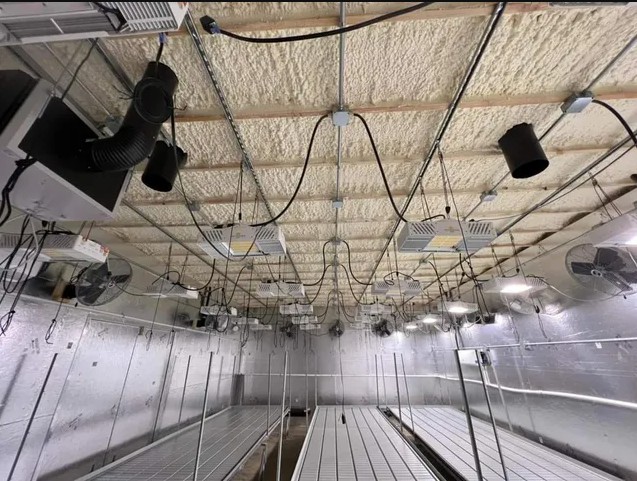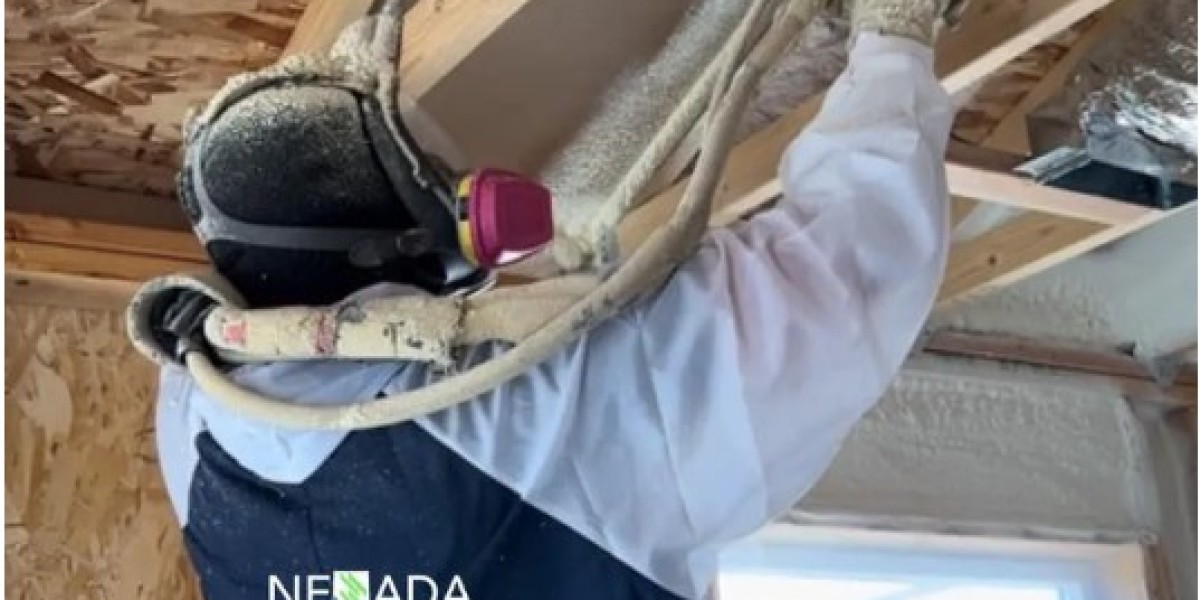Agricultural spray foam insulation has become a game-changer in the farming sector, offering benefits that extend far beyond traditional insulation methods. In this post, we explore several successful applications of insulation, demonstrating its versatility and effectiveness in various farming environments. Nevada Urethane, based in Spring Creek, NV, specializes in providing top-notch agricultural spray foam insulation, ensuring that farms and agricultural facilities achieve optimal energy efficiency and comfort.

Understanding Agricultural Spray Foam Insulation
It involves applying a special foam that expands upon application, creating an insulating barrier that helps regulate temperature and improve energy efficiency. This type of insulation is particularly beneficial in agricultural settings due to its ability to provide superior thermal insulation, reduce energy costs, and enhance overall building performance.
What is Agricultural Spray Foam Insulation?
It is a polyurethane-based foam sprayed onto surfaces to create an effective insulating layer. It expands on contact, filling gaps and creating a seamless barrier that prevents heat loss or gain. This insulation method is highly effective for barns, silos, greenhouses, and other agricultural buildings.
Benefits of Agricultural Spray Foam Insulation
- Improved Energy Efficiency: By creating a tight seal, agricultural spray foam insulation minimizes energy loss, leading to lower heating and cooling costs.
- Enhanced Comfort: It helps maintain a consistent temperature within agricultural buildings, improving the comfort of both livestock and equipment.
- Moisture Control: The foam acts as a moisture barrier, reducing the risk of mold and mildew, which is essential in maintaining a healthy environment for crops and animals.
- Noise Reduction: Spray foam insulation can also help reduce noise levels, creating a quieter and more peaceful environment.
Successful Applications
1. Livestock Barns
In livestock barns, maintaining a stable temperature is crucial for the health and productivity of animals. They offer significant advantages for these facilities:
- Temperature Regulation: By insulating the barn with spray foam, Nevada Urethane has helped farmers keep their barns at optimal temperatures year-round. This prevents extreme heat or cold from affecting livestock, improving their overall well-being and productivity.
- Energy Savings: With spray foam insulation, farmers have reported substantial savings on heating and cooling costs. The insulation reduces the need for additional heating during winter and cooling during summer, resulting in lower energy bills.
2. Greenhouses
Greenhouses require careful temperature control to ensure healthy plant growth. Spray foam insulation provides several benefits:
- Consistent Climate: They help create a stable environment inside the greenhouse, ensuring that plants receive the right amount of heat and protection from external temperature fluctuations.
- Cost Efficiency: By improving energy efficiency, spray foam insulation reduces the amount of energy needed to maintain the greenhouse climate. This leads to cost savings on heating and cooling, which can be reinvested into the farming operation.
3. Silos
Silos are essential for storing grain and other agricultural products. Insulating these structures can prevent temperature and moisture-related issues:
- Temperature Stability: Spray foam insulation helps maintain a consistent temperature inside the silo, protecting stored products from temperature extremes that could affect quality.
- Moisture Management: By providing a moisture barrier, the insulation helps prevent condensation and mold growth, preserving the integrity of stored materials.
4. Farm Equipment Storage
Protecting farm equipment from extreme temperatures and moisture is crucial for maintaining its functionality and longevity. Spray foam insulation can be applied to storage facilities to:
- Prevent Damage: Insulation helps protect equipment from temperature fluctuations that can cause wear and tear, extending the life of valuable machinery.
- Reduce Maintenance Costs: By preventing damage from temperature extremes and moisture, farmers can reduce maintenance and repair costs for their equipment.
How Nevada Urethane Ensures Successful Insulation Projects
Nevada Urethane, a leading provider of them in Spring Creek, NV, employs several strategies to ensure the success of their insulation projects:
Expert Assessment and Customization
Before starting any project, Nevada Urethane conducts a thorough assessment of the client's needs and the specific requirements of the agricultural facility. This helps them customize the insulation solution to ensure optimal performance.
High-Quality Materials and Techniques
The company uses only high-quality spray foam materials and advanced application techniques to ensure a perfect application. Their expertise in the field guarantees that the insulation is applied correctly, providing maximum benefits.
Ongoing Support and Maintenance
Nevada Urethane offers ongoing support and maintenance services to ensure that the insulation continues to perform effectively over time. They provide advice on how to maintain the insulation and address any issues that may arise.
FAQ
What is the lifespan of agricultural spray foam insulation?
It has a long lifespan, often lasting 20 to 30 years or more when properly maintained. It is durable and resistant to wear and tear, making it a cost-effective solution for long-term use.
How does agricultural spray foam insulation compare to traditional insulation methods?
It provides superior thermal performance compared to traditional insulation methods. It offers a seamless barrier that prevents air and moisture infiltration, resulting in better energy efficiency and comfort.
Is agricultural spray foam insulation environmentally friendly?
Yes, many spray foam insulation products are environmentally friendly. They can help reduce energy consumption, leading to lower greenhouse gas emissions. Additionally, some products use renewable resources and are designed to minimize environmental impact.
Can agricultural spray foam insulation be applied to existing structures?
Yes, it can be applied to both new and existing structures. It is versatile and can be used to retrofit buildings, providing significant improvements in energy efficiency and comfort.
How do I know if agricultural spray foam insulation is right for my farm?
Consulting with a professional insulation contractor, such as Nevada Urethane, can help determine if it is the right choice for your farm. They can assess your specific needs and provide recommendations based on your requirements.
Conclusion
They offer numerous benefits for farming operations, including improved energy efficiency, enhanced comfort, and better moisture control. Nevada Urethane has successfully applied this insulation in various agricultural settings, demonstrating its versatility and effectiveness. From livestock barns to greenhouses and silos, spray foam insulation has proven to be a valuable investment for farmers looking to optimize their operations.
If you're considering agricultural spray foam insulation for your farm, contact Nevada Urethane at (775) 397-2820 to discuss your needs and explore how they can help enhance the efficiency and comfort of your agricultural facilities.



